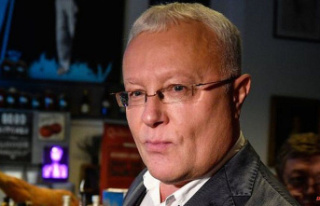After a wave resignations that left vacant roles and decimated the PM's authority, Boris Johnson has taken over the vacant positions in his cabinet.
These ministers will continue to be in place until Mr Johnson is no longer Tory leader.
Greg Clark was named the new secretary for levelling up, while James Cleverly has been appointed education secretary.
In a quick reshuffle, Robert Buckland, Wales secretary, returns to the cabinet.
According to Mr Buckland, the new cabinet will ensure the "day-today operation" government with Mr Johnson remaining as the PM "caretaker".
Johnson has committed not to make any major policy decisions until his successor is selected, with the contest expected to end by September.
Shailesh Vara is now Northern Ireland secretary. Kit Malthouse has been named chancellor of Lancaster and Andrew Stephenson has been made minister without portfolio.
Johnson also took the initiative to fill in the many junior positions that were created by the avalanche resignations that led to his departure.
Will Quince, who was resigned from his position as education minister after being given inaccurate briefings about the Chris Pincher scandal, has returned to his former post.
Johnny Mercer, who resigned from his post as a defense minister due to the treatment of veterans in Northern Ireland has been reappointed as a Cabinet Office minister responsible for veterans.
Edward Timpson is the new solicitor general, and Paul Scully and Marcus Jones are the ministers at Department for Levelling Up, Housing and Communities.
The BBC has learned that government whips are discussing how to get the current legislation through Parliament, even though there are so few junior ministers.
Johnson resigned saying that he had appointed a new cabinet to serve him until his successor was elected as Tory leader/prime minister.
Opposition parties and Tory MPs urged Johnson to leave now in order to avoid government paralysis.
Sir Keir Starmer, Labour leader, said that Mr Johnson should not be allowed "to hold on" to No 10, once he resigned. He also threatened to use a confidence motion to remove him from Parliament.
Sir John Major, former prime minister, said that it was unwise and possibly unsustainable for Johnson to continue in office until a new leader of the Conservative Party is elected.
Sir John suggested that Dominic Raab, Deputy Prime Minister, could be acting as prime minister while a new leader is elected.
He suggested that Tory MPs could elect a new leader to become prime minister. Party members would then be asked to support the decision.
The newly appointed levelling-up secretary stated that he would do everything possible to provide stability
Clark replaced Michael Gove and tweeted "We have a responsibility to ensure that the country's functioning government in the coming weeks."
Other cabinet ministers, such as Foreign Secretary Liz Truss or Home Secretary Priti Paltel, will continue to be in their posts.
These appointments come after a dramatic 48 hour in which many ministers, including Rishi Sunak, resigned. This plunged Johnson's leadership into crisis.
Later, Mr Sunak's successor as chancellor Nadhim Zhawi was among those ministers who urged the PM to resign.
Johnson refused to answer the calls until Thursday morning when it became apparent that Johnson had lost the confidence and ability of his MPs, and that the government was no longer able to function.
Three years ago, Johnson won a historic victory in general elections. But he has been plagued by controversy in recent months, including a penalty for violating his own lockdown laws.
This week's revolt was sparked by revelations about how the prime minister handled sexual misconduct allegations against Chris Pincher, former Deputy Chief Whip.
Now that Johnson is gone, a contest for the leadership of the party has been initiated and the winner will be the next prime minister.
Sir Graham, the Chairman of the 1922 Committee of backbench Tory Members, is expected to establish the timetable for Mr Johnson's replacement.
If more than two candidates are present, Tory MPs will cast a series vote until there are only two remaining. Conservative Party members across the country will vote to elect the winner if there are only two remaining MPs.
Former joint secretary to the 1922 Committee Mark Pritchard, Tory MP, said to the BBC that the process of whittling down the list to two candidates could be completed before MPs go on summer recess, 21 July.
Attorney General Suella Braverman, and ex-Brexit minister Steve Baker, have indicated that they will be running for the leadership. More senior Tories are expected to join the fray in the coming days.
Both Ms Truss, Defence Secretary Ben Wallace, who are both well-liked by Tory members, have been considered potential frontrunners.












